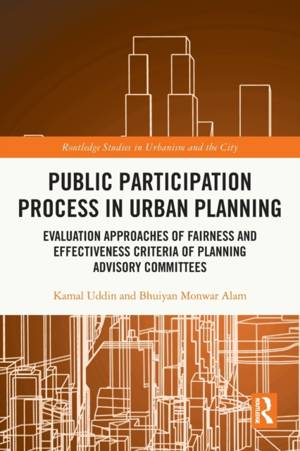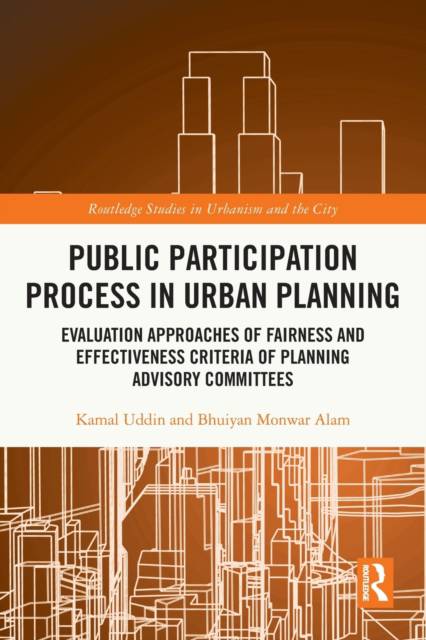
- Retrait gratuit dans votre magasin Club
- 7.000.000 titres dans notre catalogue
- Payer en toute sécurité
- Toujours un magasin près de chez vous
- Retrait gratuit dans votre magasin Club
- 7.000.0000 titres dans notre catalogue
- Payer en toute sécurité
- Toujours un magasin près de chez vous
Public Participation Process in Urban Planning
Evaluation Approaches of Fairness and Effectiveness Criteria of Planning Advisory Committees
Kamal Uddin, Bhuiyan Monwar AlamDescription
This book critically examines the public participation processes in urban planning and development by evaluating the operations of Planning Advisory Committees (PACs) through two meta-criteria of fairness and effectiveness.
Traditional models of public participation in planning have long been criticized for separating planners from the public. This book proposes a novel conceptual model to address the gaps in existing practices in order to encourage greater public involvement in planning decisions and policymaking. It assesses the application of the evaluative framework for PACs as a new approach to public participation evaluation in urban planning. With a case study focused on the PACs in Inner City area of Canberra, Australia, the book offers a conceptual framework for evaluating fairness and effectiveness of the public participation processes that can also be extended to other countries such as the United States, the United Kingdom, New Zealand, Canada, Scandinavian countries, the European Union, and some Asian countries such as India.
Offering valuable insights on how operational processes of PACs can be re-configured, this book will be a useful guide for students and academics of planning and public policy analysis, as well as the planning professionals in both developed and developing countries.
Spécifications
Parties prenantes
- Auteur(s) :
- Editeur:
Contenu
- Nombre de pages :
- 196
- Langue:
- Anglais
- Collection :
Caractéristiques
- EAN:
- 9780367640897
- Date de parution :
- 31-05-23
- Format:
- Livre broché
- Format numérique:
- Trade paperback (VS)
- Dimensions :
- 156 mm x 234 mm
- Poids :
- 299 g

Les avis
Nous publions uniquement les avis qui respectent les conditions requises. Consultez nos conditions pour les avis.






